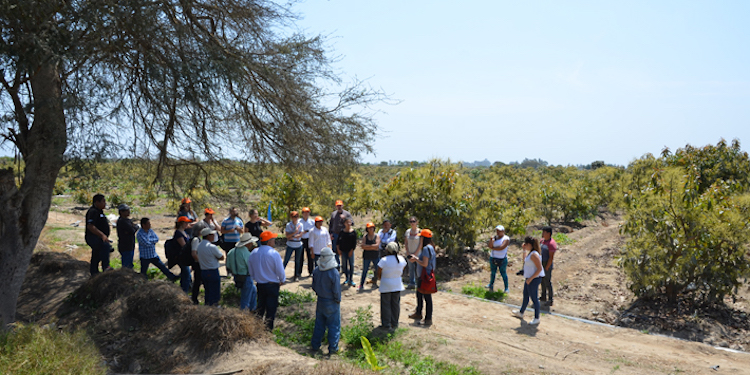
By Kwame Buist
LUSAKA, Zambia (IDN) – Billions of uninsured individuals, families and small businesses are exposed to risks which can result in catastrophic losses, delegates to the 14th International Microinsurance Conference (IMC) on ‘Inclusive Insurance for Emerging Markets’ in Lusaka were told.
Despite encouraging signs of increased insurance cover uptake in some markets, climate change and extreme weather events are exposing the poorest and most vulnerable to risk as never before.
These are the very people most in need of insurance and it is for them that various microinsurance schemes have been developed. Such schemes are designed to protect low-income people (generally those living on below four dollars a day) against specific risks in exchange for regular premium payment proportionate to the likelihood and cost of the risks involved. The target population typically consists of persons ignored by mainstream commercial and social insurance schemes.
The 2018 State of Microinsurance report, launched on the first day of the November 6-8 conference, showcases ground-breaking initiatives from around the world which are already helping to eliminate poverty and hunger, achieve good health and well-being, promote gender equality, provide decent work and economic growth, and take action on climate change.
The report suggests that inclusive insurance is playing a significant part in achieving the UN Sustainable Development Goals (SDGs), and that millions of consumers in emerging markets are already benefiting from insurance products and services which build resilience and help manage risk.
“Insurance alone will not help the world’s poor to achieve lasting prosperity, but it is a critical factor for success,” said Shipango Muteto of conference co-host the Microinsurance Technical Advisory Group (TAG) and chairman of the 14th IMC Organising Committee.
“Microinsurance companies are already providing innovative, affordable insurance products to economically vulnerable people around the world as part of the sustainable development agenda. These products and services truly work for the consumers that use them by accelerating economic growth, increasing resilience and preventing the intergenerational transfer of poverty.”
Insurance cover in emerging markets is steadily increasing – for example, the latest Landscape of Microinsurance study shows a 126 percent rise in Latin America and the Caribbean. Preliminary results from the forthcoming African Landscape of Microinsurance study, shared during the conference, show that over the last decade in Zambia, the microinsurance sector has expanded from 100,000 to more than 2.2 million lives covered under various microinsurance products such as weather index insurance, personal accident, hospital cash plan, simple term-life cover and funeral insurance policies.
However, global losses from natural catastrophes in 2017 were the highest ever at 330 billion dollars – 195 billion of which was uninsured.
It is estimated that up to four billion people worldwide are denied access to financial services including insurance. “Inclusive insurance is an essential part of sustainable economic development, and is crucial to manage increasing climate risks of many poor people who live in disaster-prone countries,” said Dirk Reinhard, vice-chairman of the Munich Re Foundation, co-organiser of the conference.
“With just 12 years remaining to realise the UN Sustainable Development Goals and less than two years to meet the G7 target to insure 400 million people against the impacts of climate change, inclusive insurance will help ensure no-one is left behind. But we have to accelerate growth, ensure economic viability and increase governmental activities.”
The 2018 State of Microinsurance reports that ‘insurtech’ – using technology to reduce costs and reach mass markets – could help accelerate and improve access to insurance in emerging markets, but the greatest challenge is often around convincing traditional insurance companies to embrace new technology and distribution models.
“Bringing insurance companies, digital providers, regulators and policy-makers face-to-face to find solutions to boost resilience and reduce disaster risk is vital if we are to grow the inclusive insurance market quickly and significantly,” said Katharine Pulvermacher, executive director of the Microinsurance Network, which publishes both the Landscape and State of Microinsurance reports and is co-organiser of the Lusaka conference.
The Microinsurance Network is the global platform for professionals and organisations committed to making insurance inclusive. It seeks to brings together diverse stakeholders who share the vision of a world where people of all income levels are more resilient and less vulnerable to daily and catastrophic risks.
According to Pulvermacher, “the good news is that there’s been a significant increase in the last decade in the number of low-income people with insurance cover of some kind. But for the market to work, insurers need a better understanding of the emerging consumer segment, so that they can design products and services that correspond more closely to customer needs, and that are priced to reflect risk more accurately while remaining affordable and sustainable from a business perspective.” [IDN-InDepthNews – 07 November 2018]
Photo: This field visit provided a learning opportunity into two of MLife’s distribution models, micro-entrepreneurs and enterprise associations. Mlife has been in partnership with the Zambia Federation of Associations of Women in Business (ZFAWIB) to provide low-cost funeral insurance services since 2016. Credit: Munich Re Foundation
IDN is flagship agency of the International Press Syndicate.
facebook.com/IDN.GoingDeeper – twitter.com/InDepthNews











